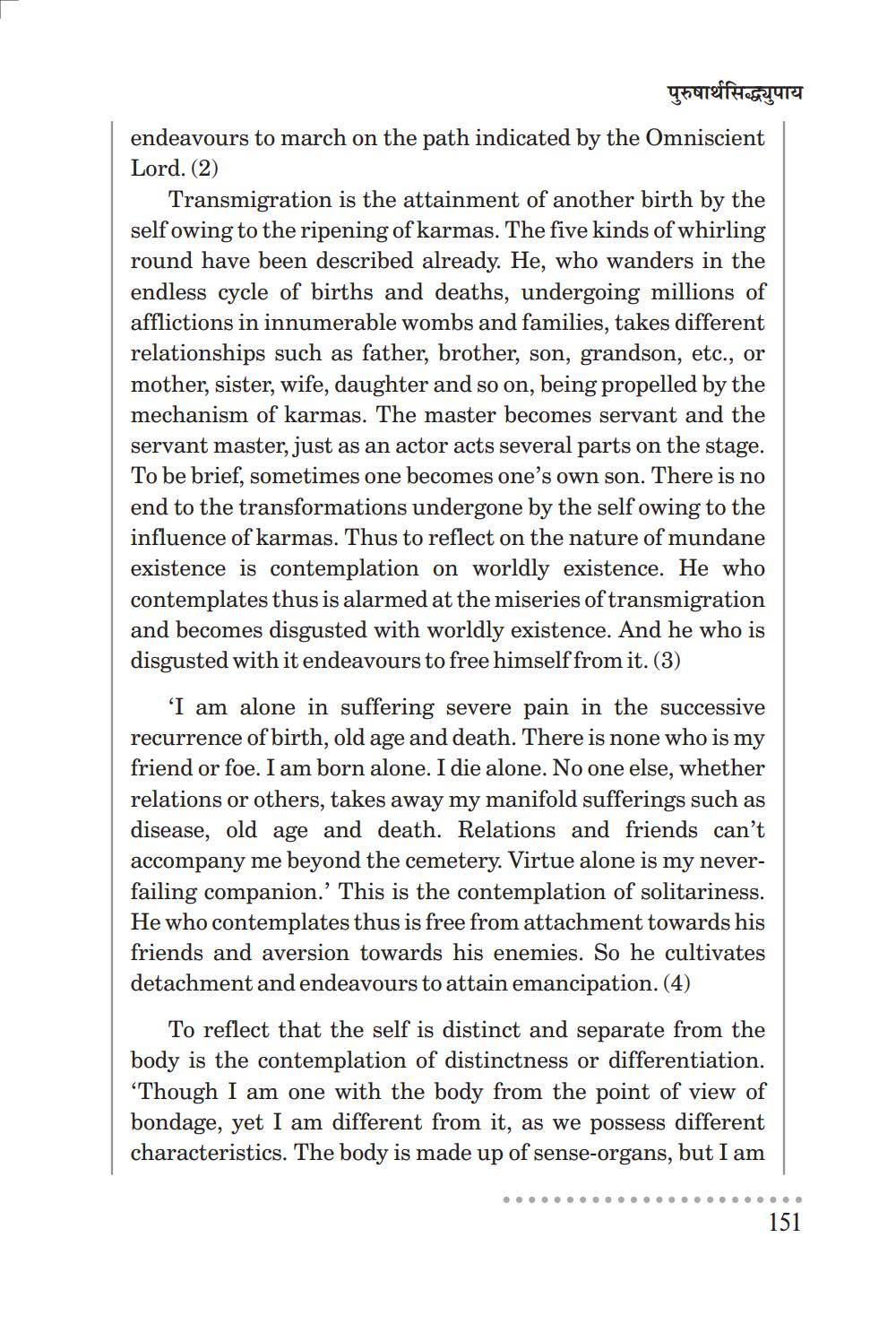________________
पुरुषार्थसिद्ध्युपाय endeavours to march on the path indicated by the Omniscient Lord. (2)
Transmigration is the attainment of another birth by the self owing to the ripening of karmas. The five kinds of whirling round have been described already. He, who wanders in the endless cycle of births and deaths, undergoing millions of afflictions in innumerable wombs and families, takes different relationships such as father, brother, son, grandson, etc., or mother, sister, wife, daughter and so on, being propelled by the mechanism of karmas. The master becomes servant and the servant master, just as an actor acts several parts on the stage. To be brief, sometimes one becomes one's own son. There is no end to the transformations undergone by the self owing to the influence of karmas. Thus to reflect on the nature of mundane existence is contemplation on worldly existence. He who contemplates thus is alarmed at the miseries of transmigration and becomes disgusted with worldly existence. And he who is disgusted with it endeavours to free himself from it. (3)
'I am alone in suffering severe pain in the successive recurrence of birth, old age and death. There is none who is my friend or foe. I am born alone. I die alone. No one else, whether relations or others, takes away my manifold sufferings such as disease, old age and death. Relations and friends can't accompany me beyond the cemetery. Virtue alone is my neverfailing companion. This is the contemplation of solitariness. He who contemplates thus is free from attachment towards his friends and aversion towards his enemies. So he cultivates detachment and endeavours to attain emancipation. (4)
To reflect that the self is distinct and separate from the body is the contemplation of distinctness or differentiation. 'Though I am one with the body from the point of view of bondage, yet I am different from it, as we possess different characteristics. The body is made up of sense-organs, but I am
151




